For more than five decades, Afghans from around the world have opened their arms for this charismatic and renowned artist, as he has released the most soothing and romantic ballads and soft ghazals to an ever-growing audience. His mystical voice is loved by millions of Afghans as it touches the soul and soothes the heart, making him a star in the world of eastern music.
Ahmad Wali’s voice, composition and lyrics integrate into a seamless art that produces superb moments and satisfies the cravings of countless Afghans and non-Afghans who cherish Afghan culture and art. For many years, he has delivered joy and inspiration with his artistic talent, deep sense of patriotism, humanitarian efforts and God given attributes, representing the best of the Afghan culture and potential.
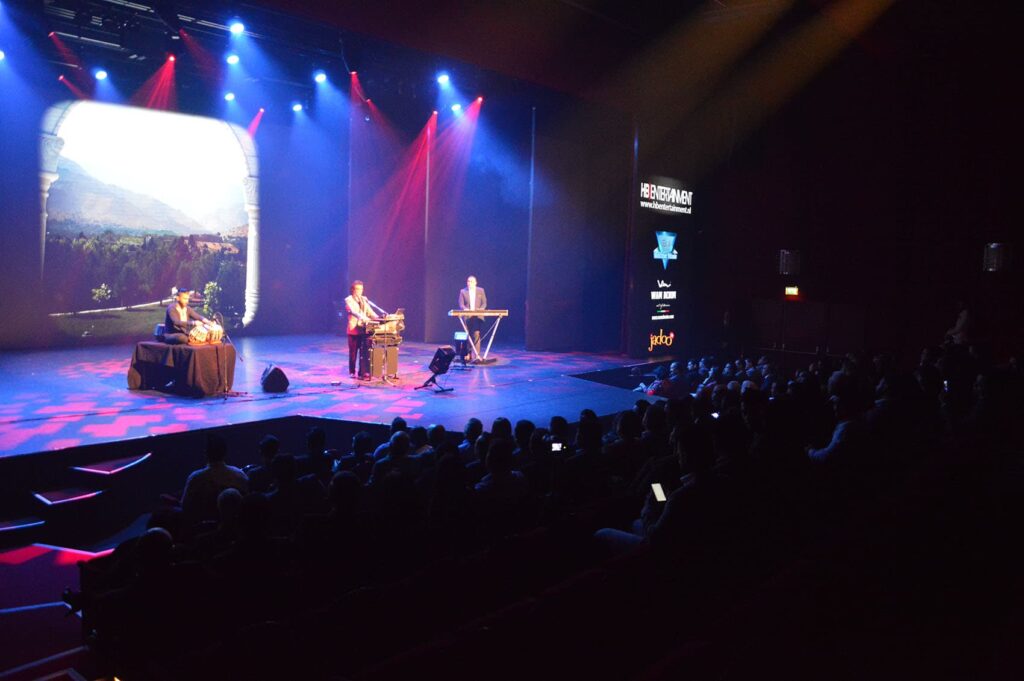
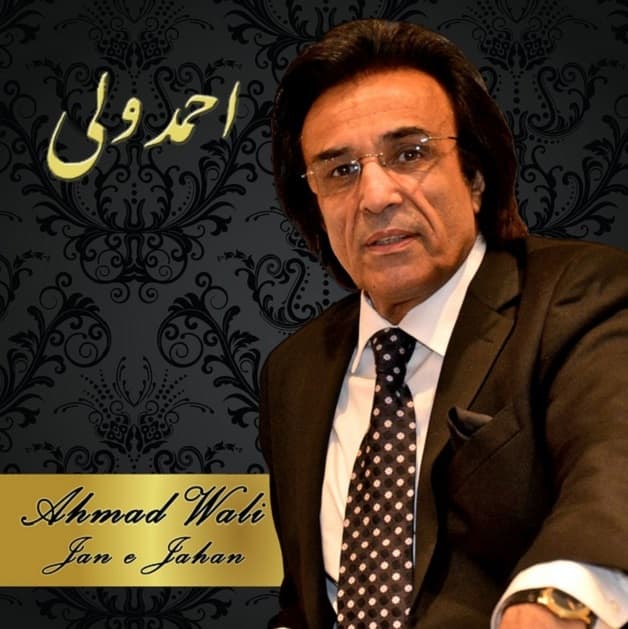
Ahmad Wali was born in Kabul, Afghanistan. Since the beginning of his illustrious career as one of Afghanistan’s most gifted artists, he has consistently remained popular among the Afghan people.
Since his early childhood, Ahmad Wali exhibited exceptional interest and talent in music. At the age of twelve, he learned to play the tabla as a student of the late Ustad Mohammad Hashim Cheshty, the renowned and prolific tabla player of Afghanistan. However, Ahmad Wali’s talent and passion for singing soon overtook his interest in tabla. At the beginning, he would perform only for his family and a close circle of friends; subsequently he emerged as one of Afghanistan’s most talented and popular singers.
An audio tape of Ahmad Wali’s performance at a private gathering was presented to Ustad Zaland, another prolific singer of Afghanistan, who at the time held a prominent position at Radio Kabul (Afghanistan’s National Radio and Television Station). Upon listening to his singing, Ustad Zaland recognized special qualities possessed by the young artist way beyond his years, entailing an extraordinary potential and future. Time proved his judgment and prediction right, especially after Ahmad Wali officially recorded his first song “Chashman – e –Abee,”, composed by Ustad Zaland, which went public in 1967. This was when he became Ustad Zaland’s student.
Soon afterwards, Ahmad Wali recorded his second song “Mah-Ruye-Tu” which was composed by Ahmad Wali himself. With the release of these songs, his fame and popularity grew among the mainstream Afghan public. Remarkably, all these achievements occurred while Ahmad Wali was still a high school student attending Lycee Habibia in Kabul.
After graduating from Lycee Habibia, despite all the success in the world of entertainment, in 1969 Ahmad Wali enrolled at the Kabul Police Academy to pursue higher education and to serve his country as a law enforcement officer. After three years, he graduated from the police academy and commenced his work as a police officer. Nonetheless, his talent and passion for music quickly overshadowed all other possibilities and Ahmad Wali reverted to his ultimate love for music and the joy of giving to the Afghan public. His music career paved the way for continuous achievements and a stellar reputation among young artists in Afghanistan.
It was on this historic debut that Ahmad Wali’s popularity and fame profoundly increased. Furthermore, Ahmad Wali’s tremendous and blossoming talent was highlighted by his touching and heartfelt performance of the song “Man Qurban-e-Saru-Paye-tu-Meshum Madar-e-man,” composed by the prolific Ustad Taranasaaz, which gripped the hearts of the Afghan public. As a result, the prestigious “Singer of the Year,” title was bestowed to him in Afghanistan.
In 1973, Ahmad Wali and a select group of other prominent artists participated at an international cultural event hosted by the Government of Iran, in commemoration of the historic musicians of “Shiraz”. Once again Ahmad Wali’s performance stood out and was applauded by a multi-national audience. His stature and prominence kept rising in Afghanistan upon his return.
With his professional career on the rise, Ahmad Wali’s distinct and soothing voice became a regular staple of the Afghan national radio and television station. At this juncture, Ahmad Wali was granted an audience before the former King of Afghanistan, Mohammad Zahir Shah, to participate as part of the many performances of the Great Ustad Mohammad Hussein Sarahang at the Presidential Palace. During one of these performances, Ahmad Wali was requested to sing in the presence of the former King by Ustad Sarahang, who would soon accept him as one of his students.
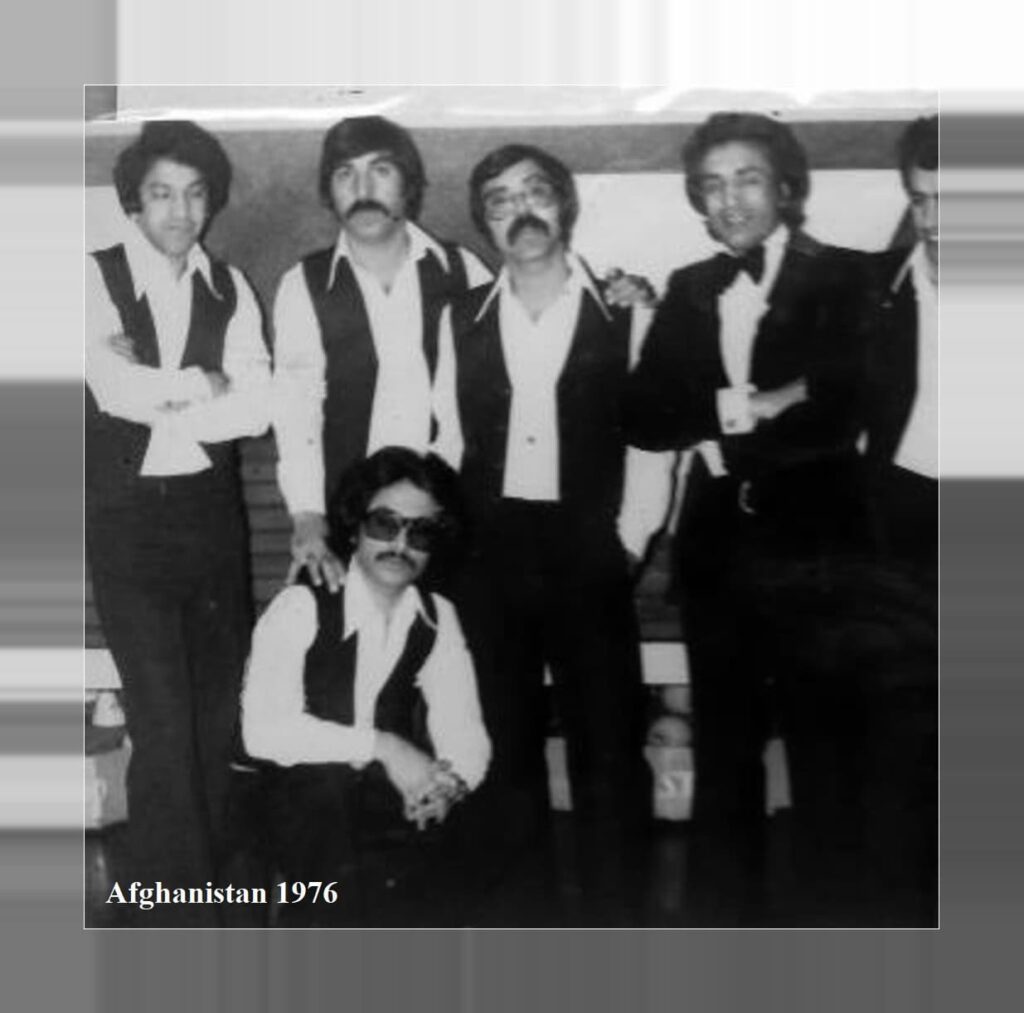
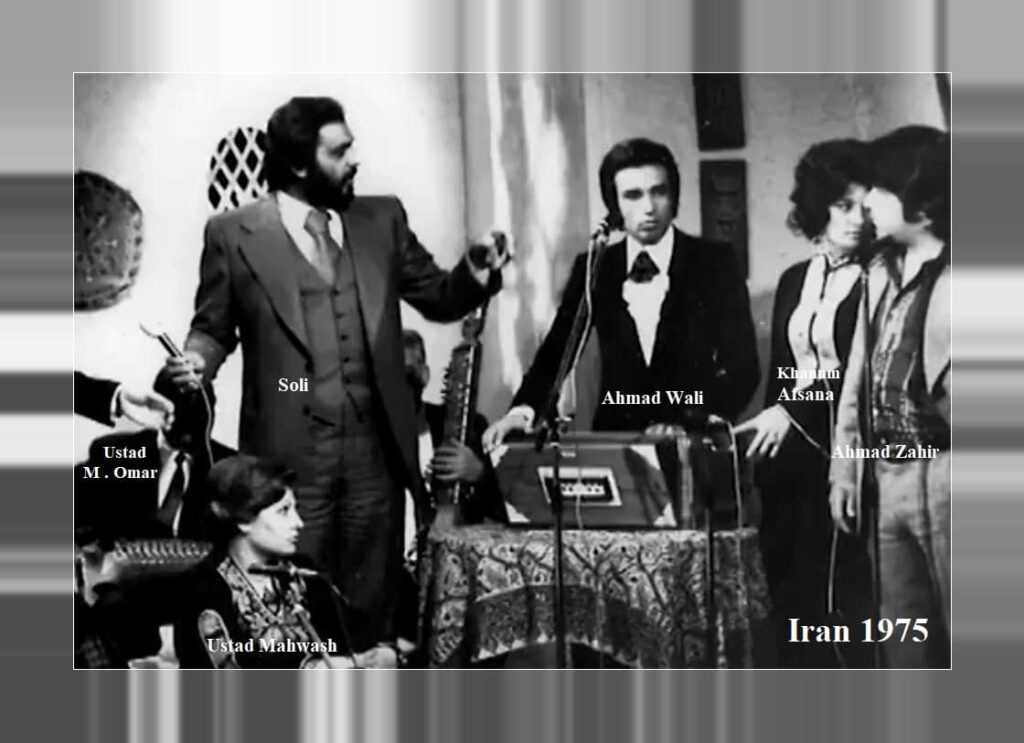
In 1975, Ahmad Wali and a select group of eminent artists including the renowned Ahmad Zahir, participated at an international event hosted by the Government of Iran. He recorded a song “Pas Az in Zari Makon” together with Ahmad Zahir and Soli, a famous Iranian singer, at the National Radio and Television of Iran. The song was originally sung by the popular Iranian singer Vigen, who was known as the “Sultan of Jazz”.
Ahmad Wali was raised in a family and household who loved various forms of artistry. His family encouraged him to excel in the art of singing and provided him with guidance and discipline to evolve as an outstanding artist who delighted in serving his fellow Afghans.
From 1967 to 1978, Ahmad Wali recorded numerous famous songs at Afghanistan’s National Radio and Television Station. He released eight audio cassette albums and duet songs with notable Afghan female singers.
In 1980, Ahmad Wali arrived in Germany. His faith in God, as well as his love for his country and fellow Afghans are represented in his numerous songs and records produced over the years in exile. Notably, Ahmad Wali turned to singing quite a few poems composed by the late Ustad Khalilullah Khalili, a legendary Afghan writer and poet. The poems reflected the spirit and ideals of Afghan resistance against the Soviet invasion of Afghanistan and Afghan’s longing for freedom.
In 1984 and 1985 Ahmad Wali’s concerts in Germany, France, Switzerland, England and Sweden helped raise funds to support Afghan refugees residing in Pakistan and Iran. During the same year, he held a joint fundraising concert with Peter Maffay, a famous German singer, as well.
In 1987, at the invitation of the prestigious World Music Institute (WMI), one of the leading presenters of world music within the U.S., Ahmad Wali traveled to the United States to embark on a nationwide tour, performing for Afghan communities throughout the United States. After long years of separation, for Afghan immigrants in the United States, this was a sweet reunion with Ahmad Wali since the peaceful days in Kabul. The proceeds from concerts were given to the International Rescue Committee to provide food, medicine and clothing for Afghans in refugee camps in Pakistan.
After this memorable tour, he continued to travel from Germany to the United States for musical events and programs around the country in 1989, 1993 and 1996, before eventually moving to Virginia, United States.
After settling in the U.S., Ahmad Wali has held countless concerts and programs. His hard work, dedication and commitment to his profession is exemplified by him personally driving to events across the country, with his own complete set of musical equipment, to provide his audience with the best quality sound and performance.
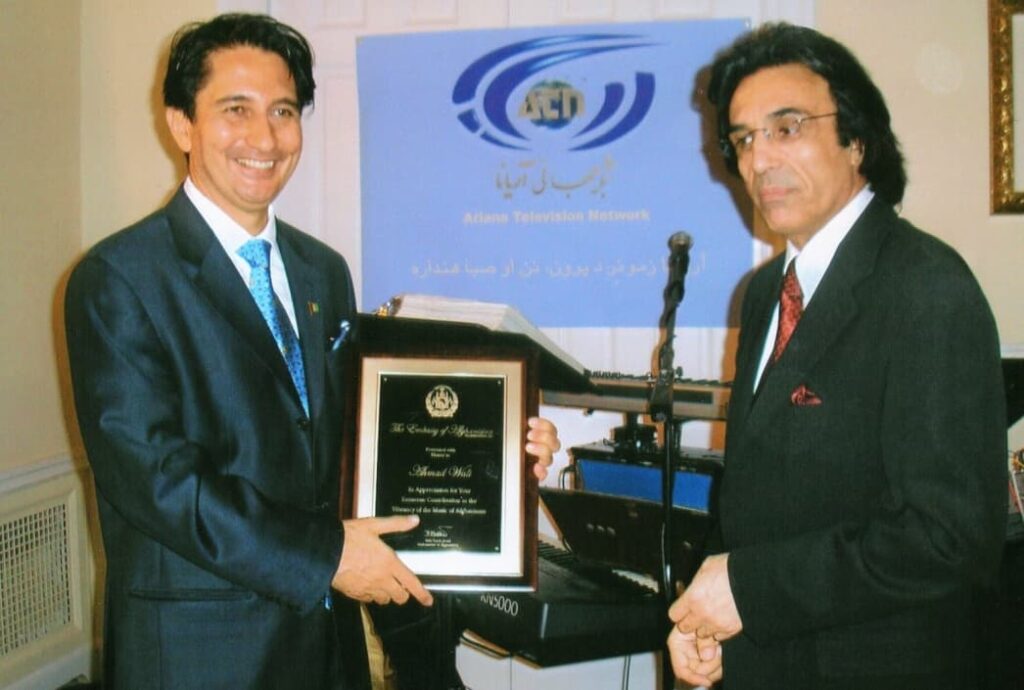
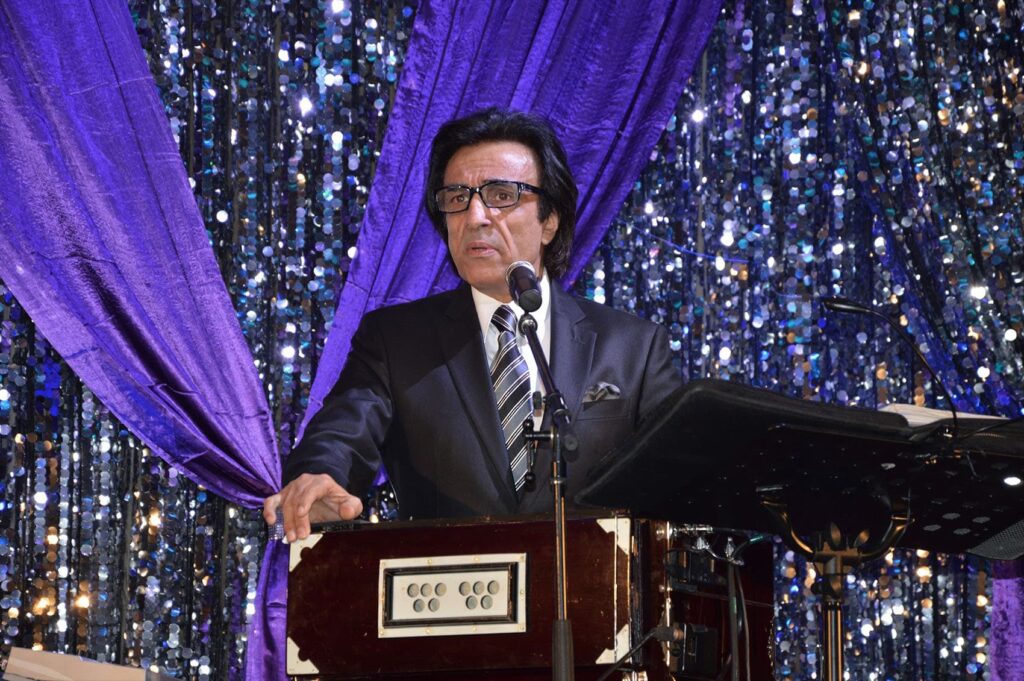
On August 18, 2005 Ahmad Wali performed at the Embassy of Afghanistan in Washington, DC, to celebrate and honor Afghanistan’s 86th National Independence Day, where members of the Afghan and diplomatic community were in attendance.
In December of 2005, he starred in a memorable fundraising concert convened by the Afghan Student Association in Virginia. Like most of his other appearances, the proceeds were sent to support the construction of an educational community center in Jaghori district of Ghazni province of Afghanistan. At this school, local villagers are provided courses where they learn skills in the fields of education, basic computer skills, farming and irrigation, health care for women and children, including prenatal care for infants.
In November of 2007, Ahmad Wali held a fundraising concert in San Francisco, California for an American dentist, Dr. James G. Rolfe of Santa Barbara, California, to help with his “Afghan Dental Relief Project”. In 2007 the Kabul School of Dental Technology was formed where students from socially disadvantaged populations were selected for intensive course work and clinical experience in the field of dentistry. Graduates become certified dental assistants and can attain a job with local dentists as well as to pursue their education and earn additional certificates as dental hygienists or dental laboratory technician. The program has helped to provide a high standard of care for an increased number of patients, free of charge.
In June of 2014, in the aftermath of the tragic mudslides in Argo district of Badakhshan province of Afghanistan, which sadly impacted the lives of thousands of people residing in the affected areas, Ahmad Wali held another fundraising concert in Frankfurt, Germany. Proceeds from the concert were sent to Badakhshan province to help provide food and clothing to the local population.
After more than five decades, Ahmad Wali continues his illustrious career in the music industry as he holds annual musical concerts and programs for his fellow Afghans residing within the United States, Europe and around the world, including recording and releasing new musical albums.
He is keeping alive the original music of Afghanistan and often remembers and pays tribute to the great and historic Afghan artists of the past who have laid the foundation for the country’s traditional music.
Ahmad Wali has proudly dedicated his life to being in the service of his fellow compatriots and through his music has consistently advocated for an independent, united, stable and prosperous Afghanistan.
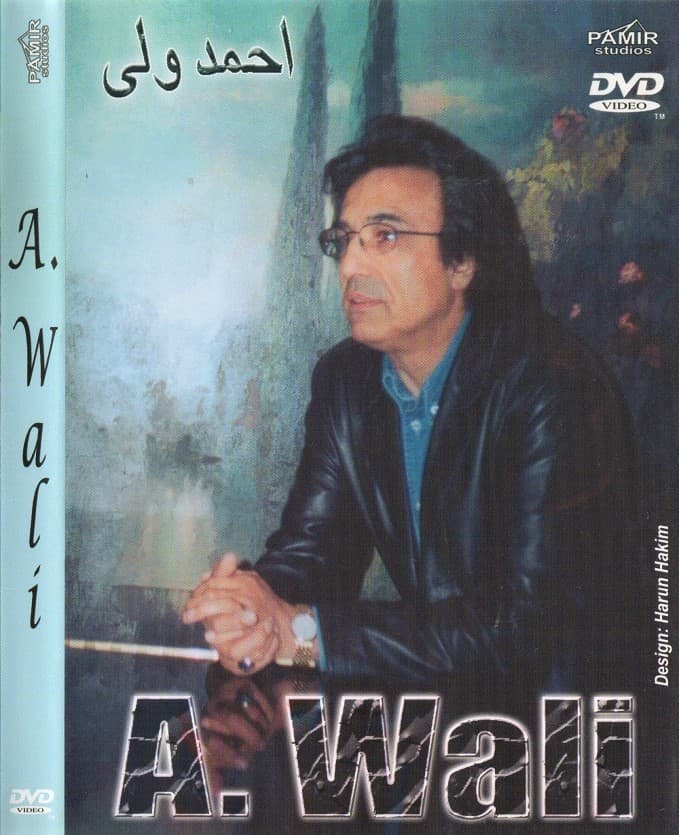
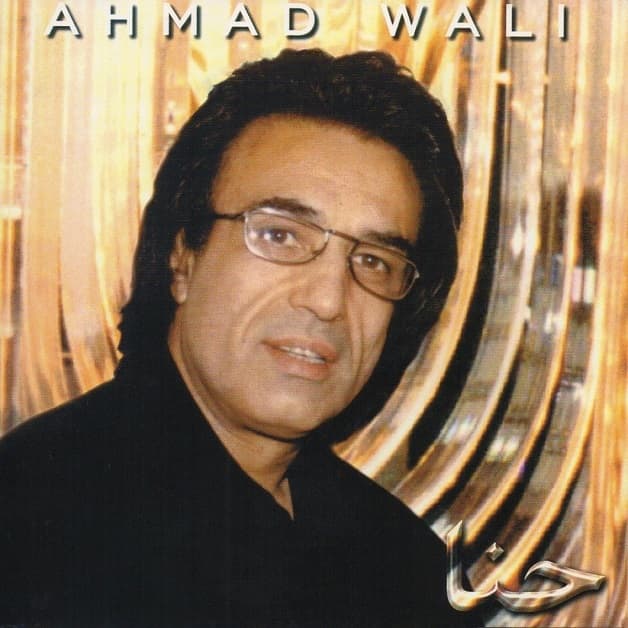
During the past more than three decades, he has released numerous mesmerizing albums in audio cassette and CD, as well as videos of live performances which include:
Jawedana-ah in 1985, Nowruz in 1985, Lala-e-Syah (Black Tulip) in 1987, Ramideh in 1987, Sahargahan in 1988, Ketab-e-Khaterat in 1989, Ahmad Wali Live in San Francisco in 1989, Ahmad Wali Live in Los Angeles in 1989, Bahar in 1990, Dost in 1990, Zindagi in 1990, Watan in 1992, Naaz in 1993, Negin in 1994, Atash in 1996, Bayaad Dari in 1996, Safar in 1997, Hena in 1998, Par-e-Tawoos in 1998, Tamanna in 1999, Sahib Nazaran in 1999, Chashm-e-Shokh in 2000, Awargi Volumes 1 and 2 in 2000, Khak-e-Kabul in 2001, Arezoo in 2005, Jan-e-Jahan in 2012, Lab-e-bay-Sukhani in 2014, Ahmad Wali Live in 2016, Ahmad Wali Live in San Francisco (VHS) in 1996, Ahmad Wali Live in Studio (DVD) in 2002 and Ahmad Wali Live in San Francisco (DVD) in 2004.